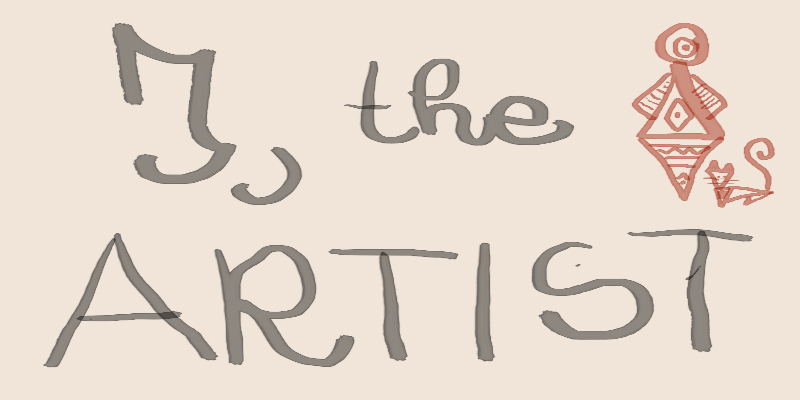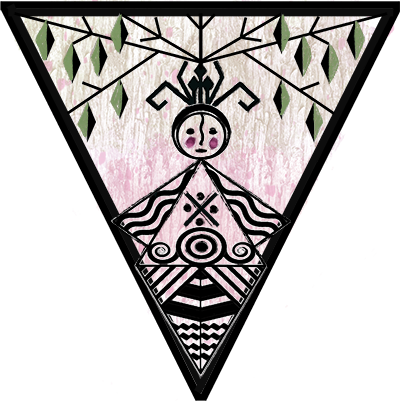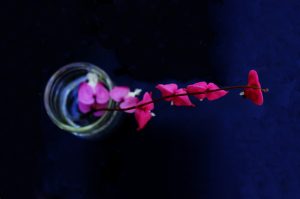 The Internet and in particular the overwhelming success achieved on the Internet by people who create/make things is changing violently, and uncomfortably for some, the paradigm of art and the artist. What makes an artist? Everybody who creates something in any medium, from painting to crocheting, calls themselves if not “artist,” at least “maker,” “creator,” or “crafter.” The problem is that there is a wide array of skill, technique, knowledge, years of study, work, etc. involved in this small space defined as art and craft, and some resent it to find themselves in the same category as people that they see as less achieved in some of these areas.
The Internet and in particular the overwhelming success achieved on the Internet by people who create/make things is changing violently, and uncomfortably for some, the paradigm of art and the artist. What makes an artist? Everybody who creates something in any medium, from painting to crocheting, calls themselves if not “artist,” at least “maker,” “creator,” or “crafter.” The problem is that there is a wide array of skill, technique, knowledge, years of study, work, etc. involved in this small space defined as art and craft, and some resent it to find themselves in the same category as people that they see as less achieved in some of these areas.
I think this is an amazingly interesting discussion. What makes an artist and what differentiate one from any other “creator”? Is the artist becoming yet again an artisan, a maker, rather than an inspired, venerated, prophetic “cultural aristocrat”? This is the question discussed by William Deresiewicz in The Death of the Artist—and the Birth of the Creative Entrepreneur published in The Atlantic, and followed up by Robinson Meyer in The Artist Endures. I recommend that you read these articles to get a feeling of the whole range of this discussion. I, as always, try to figure out how these concepts apply to the world of literature.
I like William Deresiewicz’s description of the artist as a prophet and a “cultural aristocrat.” I think that is the image that I grew up with. That was who all the great writers I admired represented in my small world view: titans of beauty and of the spirit.
However, when it comes to what makes an artist and who can call themselves an artist, the issue is very thorny. There will be those who will argue that one needs to follow an art education or years of training and dedication to the craft in order to call themselves artists. That’s the school of thought I tend to to subscribe to: you have to learn and know the techniques and methods of every great artist before you, in order to reach a point where you can modify and customize those techniques to fit your own style. I believed strongly (still do, I guess) that you cannot break the writing rules until you know said rules to perfection, until you have studied how all the other writers before you have innovated and have made their books into works of art.
Writers also feel resentful when everyone who can put words down on paper calls themselves a “writer.” Now when anyone can publish a book, the backlash from writers who have chosen the traditional route is merciless. And I understand: after years of following the traditional paths they see themselves being passed over by people who decided they were writers overnight, and self-published books that found their audience and turned into a great success stories.
Another important aspect of these waves of change is that art critics see their opinion having less and less weight, because now it is directly the public who has a say about who will be a success and who will fail. Exactly the same thing is happening with writing and publishing. If you self-publish you circumvent that edifice of agent-publisher-literary critic that has been raising itself up for several decades, and instead you let your readers say if you’re good enough or not by choosing to buy or not to buy your book.
The art world (literature included) is a subjective place. There is little objective differentiation and the real question now is: who do we allow now to make these subjective decision of who is a good/great artist and who is just a dabbler, a crafter, whatever you want to call it. The need of professional art/book critics has been sustained by the idea that the public will buy commercial art/literature, but high art/literature won’t be appreciated as it should, because the public wants easy stuff and is not able to make an informed decision, or doesn’t have enough taste. So these arbiters of taste and value with a very sophisticated knowledge of the field are needed to tell us what what’s worthy of our attention and money, and what we should despise or consume only as a “guilty pleasure.”
My own feelings on the matter go back and forth all the time. I self-published my first book, so obviously I believed at some point that real value (yes, whatever, I imagine sometimes that my work has real value, so shoot me for lack of modesty; I’m not ashamed) is visible to anyone, and people don’t need any authority figure to tell them what to like. I still don’t think this is a completely wrong way to look at things, but I have less confidence in it now.
So, I am going to submit my second book to agents this time and see if there is any interest from the traditional publishing world. I am now seeing that there is so much being published these days that without a few “arbiters” telling us what’s what, it is hard to sift to the gravel to find gold.
There is another aspect of this whole story, about how personal websites, blogs and social media help the self-made artists/writers who have self-branding and self-promoting aptitudes. Maybe I will write a different post about that soon. For now, all I can say is that both the traditional routes toward success in the arts and the new ones facilitated by the Internet seem perfectly valid and work for different people in different ways. I hope you find your way and I hope I can find mine.

